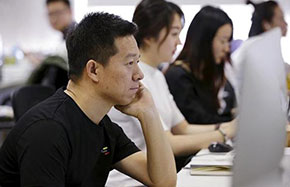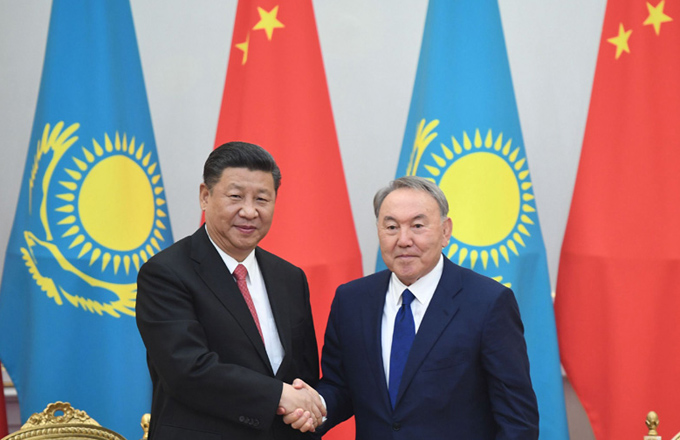High-level think-tank dialogue focuses on China-US economic, trade ties
NEW YORK - More than 30 scholars from leading think-tanks in both China and the United States gathered here on Wednesday to discuss the bilateral economic and trade relationship between the world's two largest economies.
The High-level Dialogue on US-China Economic Relations, jointly hosted by the New York City-based Asia Society Policy Institute and the China Center for International Economic Exchanges, was the first of its kind since a landmark meeting in early April between Chinese President Xi Jinping and his US counterpart Donald Trump in Mar-a-Lago, Florida.
During their successful meeting, which many believe has set the course for the current and future development of bilateral ties, the two presidents agreed on a 100-Day Plan to bolster economic and trade cooperation between their countries, as well as to address each other's major concerns. In May, the two sides announced the "early harvest" from the 100-Day Plan.
The Wednesday dialogue, intended to be a follow-up on this strong, positive momentum, mainly focuses on three topics, namely "US-China Economic Relations: New Common Ground for Cooperation," "the 100-Day Plan since Mar-a-Lago and Beyond," and "US-China Cooperation in Global Economic Governance."
The one-day event featured prominent keynote speakers including Tung Chee-hwa, vice chairman of the National Committee of the Chinese People's Political Consultative Conference, or China's top political advisory body, Zhao Qizheng, former minister of China's State Council Information Office, Kevin Rudd, president of the Asia Society Policy Institute, and former New York City mayor Michael Bloomberg.
Citing the successful presidential meeting, the initial achievements of the 100-Day Plan and the participation of a US delegation in last month's Belt and Road Forum for International Cooperation in Beijing, the speakers and dialogue participants noted that US-China relations are moving toward a more stable, constructive and sustainable direction.
Calling economic and trade cooperation the "ballast stone" for the development of bilateral relations, they agreed that the Chinese and US economies are highly complementary, and that the 100-Day Plan can play a major, positive role in promoting US-China economic and trade relations in the new era, especially in the rebalancing of bilateral trade.
With bilateral economic and trade relations "at a critical stage," they said, think-tanks from both sides should better communicate and work together to provide sound policy advice for both governments, so as to help bridge the gaps, reduce differences, expand cooperation and achieve win-win outcomes.
In their open and candid exchange of views, the Chinese participants expressed concerns about the rigid national security reviews on Chinese enterprises coming to invest in the United States, while their American counterparts raised some questions about the foreign investment environment in China.
Nevertheless, both sides urged their governments to facilitate the early completion of negotiations on the US-China bilateral investment treaty (BIT), and to launch broader negotiations on a bilateral investment and trade treaty (BITT) when the time is ripe, so as to further expand cooperation in areas like high-tech products and services.
The Chinese side also conveyed Chinese companies' desire to participate in the ambitious US infrastructure upgrading plan in various ways, with their rich experience and great expertise in the building of high-speed railways, expressways, bridges and harbors. The US side, meanwhile, showed much interest in getting more American businesses involved in the China-proposed Belt and Road Initiative.
The two sides also had in-depth discussions on how the United States and China could conduct closer cooperation to address global challenges, and on global governance reforms aimed to introduce fairer and more just, rational and sustainable order and rules for the world.
China's top-notch think-tanks, including the Chinese Academy of Social Sciences, the Development Research Center of the State Council and the Chinese Academy of Macroeconomic Research, all sent in scholars for the dialogue.
Some Chinese business representatives, and officials from the State Council Information Office, the National Development and Reform Commission and the Ministry of Commerce also attended the event as observers.
On the sidelines of the event, the Chinese delegation presented the newly-released "Building the Belt and Road: Concept, Practice and China's Contribution" report and "Research Report on US-China Economic and Trade Relations," and also had a Q&A session with international media.

























